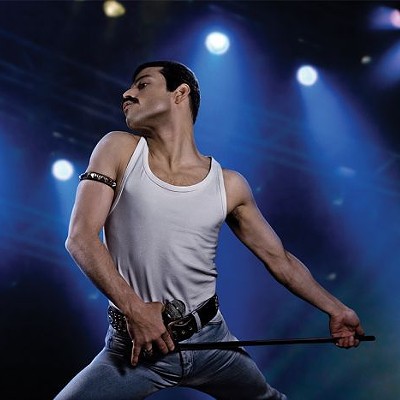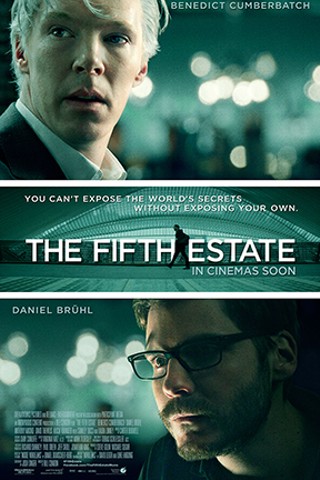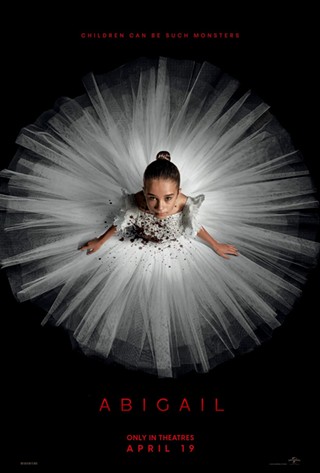The real story revealed in The Fifth Estate isn't the rise of Julian Assange or the threat of Wikileaks; it's that, by and large, nobody seems to care about this stuff for very long. That's a bit disconcerting, really, but there it is. The film is bubbling over with characters exclaiming or worrying that leaked documents will shake governments and multinational institutions to their very cores, and it all rings rather empty at this point.
What is the global impact of Assange's efforts? What have leaked war documents and intelligence cables led to? Edward Snowden, maybe, and what has that led to? A week of outrage followed by a chorus of chirping crickets. Or at least it feels like that's what's come of it. There's plenty of sympathy for Bradley Manning, who just began serving a long sentence for sharing classified documents with Assange; the Wikileaks founder is little more than a popinjay holed up in the Ecuadoran embassy in London; and Snowden's notoriety came and went rather quickly.
Beyond the true impact of Wikileaks, though, there are the merits of a film to consider. The best thing about The Fifth Estate is, indeed, Assange himself, or rather Benedict Cumberbatch's magnificent, megalomaniacal portrayal of the Australian hacker-turned-activist-turned-exile. It's jarringly good stuff, helped along all the more by Daniel Brühl's turn as Daniel Domscheit-Berg, Assange's right-hand man during Wikileaks' moment of ascension. Brühl is even better in Rush, which is still in theaters.
The movie bends close to reality a fair amount of the time, using real news footage instead of re-creations and ringing incredibly of-the-moment. But then The Fifth Estate introduces a small cabal of American diplomats (Laura Linney, Stanley Tucci and Anthony Mackie). They're not real people, nor is there any considerable reason to show the intelligence community's response to the leaked documents or anything else. It could even be argued that the facelessness of entities like Big Brother is precisely the point of making them the bad guy.
Perhaps you saw the open letter Assange penned to Benedict Cumberbatch in the past couple of weeks, crying foul over the movie generally and the actor's decision to appear in it (though not his performance). The film convincingly draws a conclusion you may have reached yourself over the past couple of years: More than anything else, Julian Assange is about Julian Assange. What possible social good comes from writing a published letter to a man starring as you in your biopic? It's just a way to tip the seesaw the other direction, momentarily shining the light not on the film that paints him in a bad one.
The pity is that Assange and Wikileaks do raise questions about free speech, about privacy rights, about transparency and policy, and about technology. That's what gets lost in Julian Assange being Julian Assange. Cumberbatch (who still has the Oscarific 12 Years a Slave and August: Osage County coming to theaters this fall) nails it. He captures the vanity and insecurity as much as the mannerisms and voice. If you're not already paying attention to him, this is a pretty good year to start.
The tale of Assange was also recently featured in the documentary We Steal Secrets, which fares better. It even delves into the more noteworthy story of Bradley Manning, who had genuine conflicts of conscience. Watch The Fifth Estate for Cumberbatch, if for anything, but this film is mostly a house of cards.














